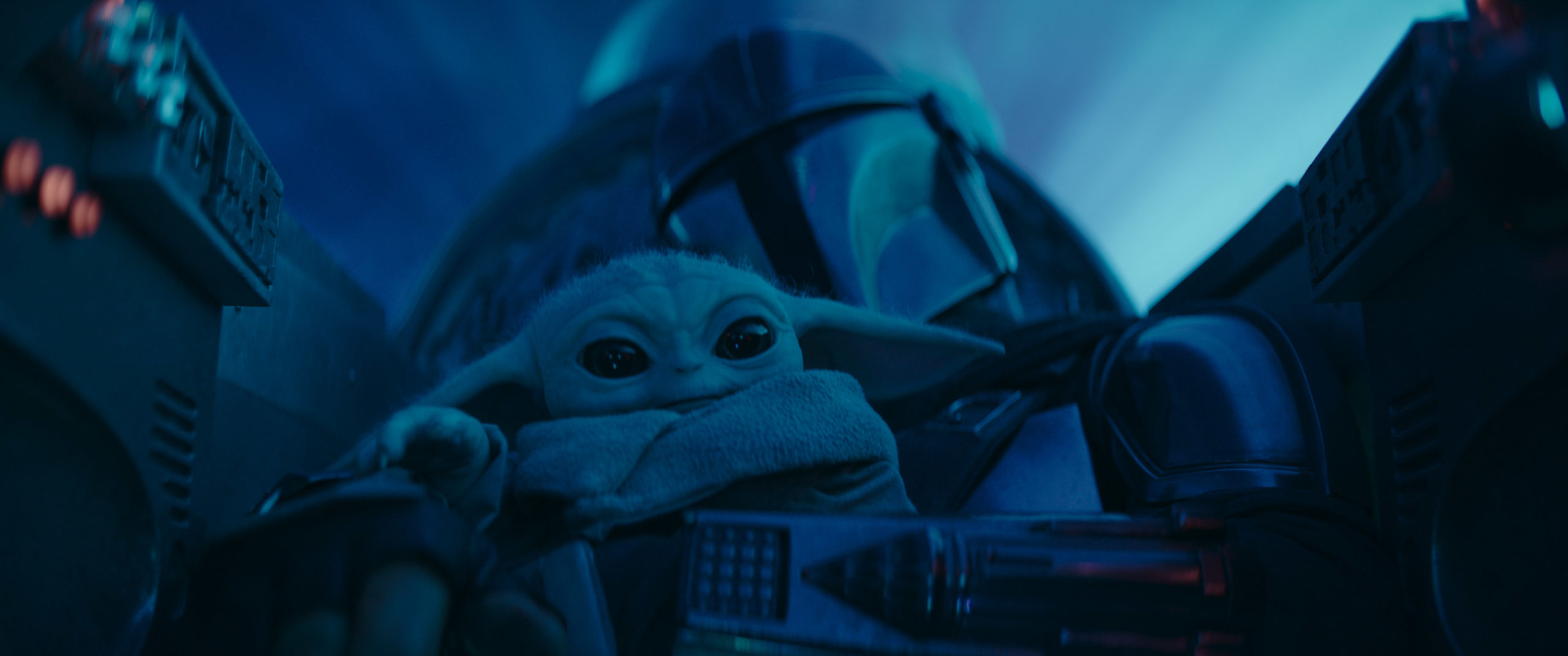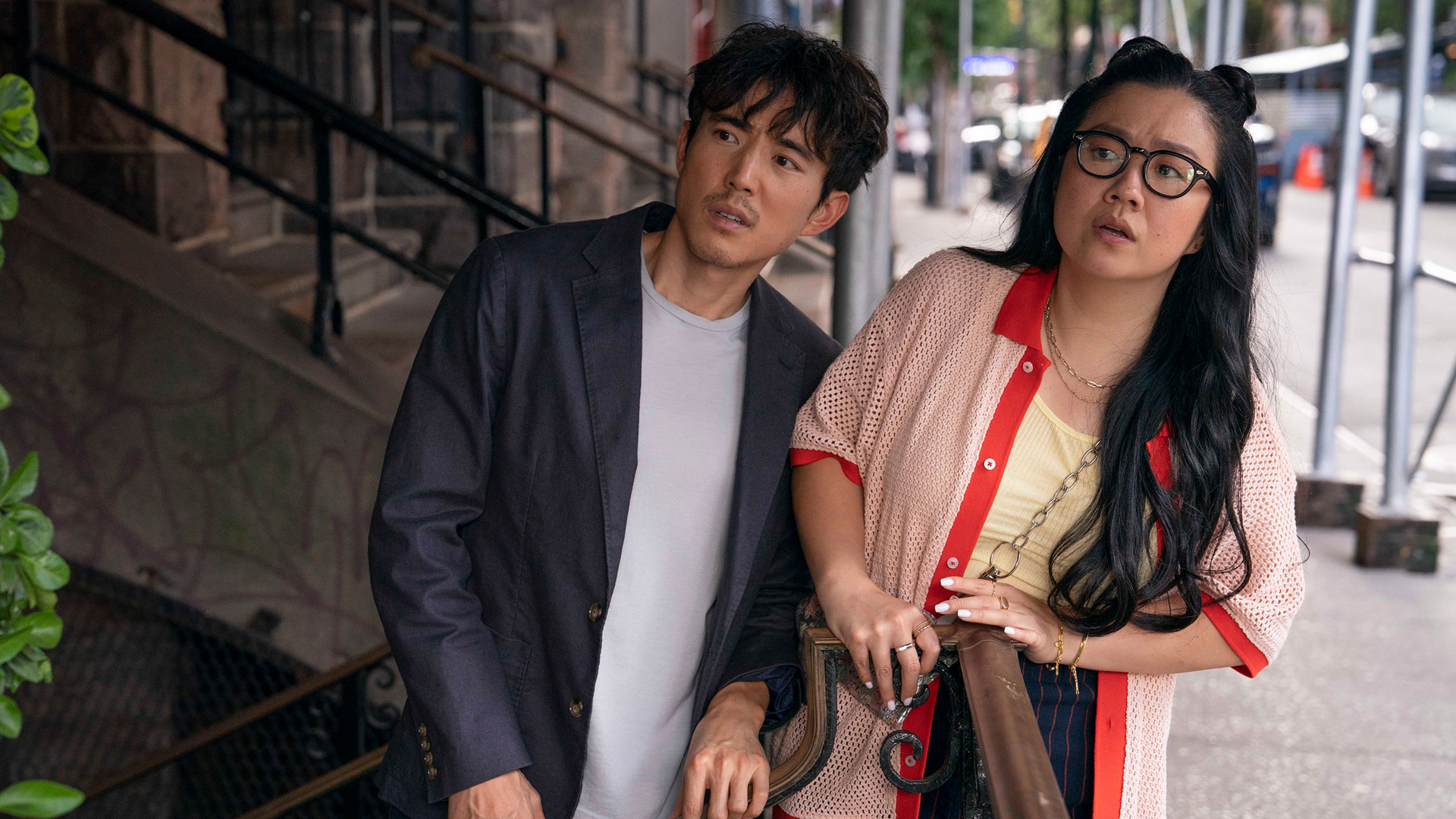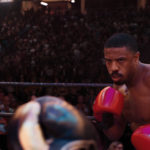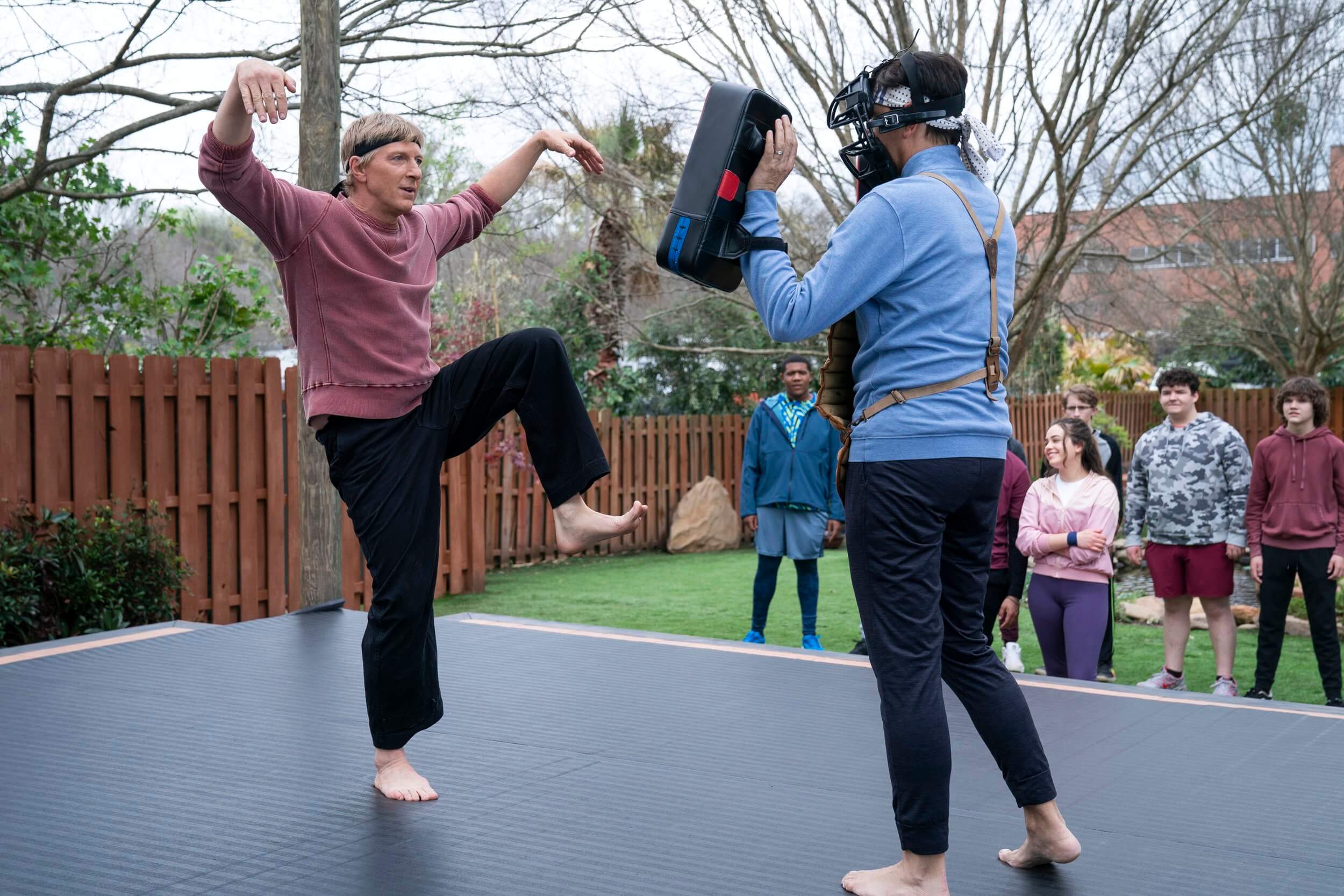
Like most people in their mid-to-late 30s, The Karate Kid was an important film in my youth. Mr. Miyagi’s mentoring musings and Johnny Lawrence’s villainous tactics are ingrained in my mind. Curiosity and nostalgia drove me to subscribe to the now defunct YouTube Red to try out the Cobra Kai reboot when the show first launched. At worst, it seems like it would be a nice burst of nostalgia to see what Johnny Lawrence has been up to for the decades since the original films. The roughly 30 minute run time per episode was an added bonus – it was a modest commitment of my TV watching energy. I was blown away to see a show that was funny, charming, and surprisingly smart. William Zabka’s take on Johnny Lawrence is somehow sadder and more incisive than I ever would have imagined possible. Beyond just the obvious karate fun and 80s gags, the show had something to say about masculinity and how societal standards have shifted over the more than three decades since the films were released.
The decades’ long tension between Lawrence and his former rival Daniel LaRusso (Ralph Macchio, My Cousin Vinny, The Outsiders) gives the show a real dramatic core. The two have remained reasonably credible in the action sequences and easily slip back into their career defining roles. The decision to structure the show not just around Johnny and Daniel, but around a new generation of, ahem, karate kids paid fast dividends. The performers were largely strong and, despite a complex web of soap opera-esque interpersonal relationships, manage to find some genuine emotional beats in their performances.

The secret sauce of Cobra Kai’s early success was unquestionably William Zabka’s performance. It’s surprising considering his career prior to Cobra Kai seemed to exist exclusively in the shadow of Johnny Lawrence. Aside from some small comedic roles in 80s comedy like National Lampoon’s European Vacation and Back to School, Zabka has primarily been deployed in low budget martial arts movies like Shootfighter or disposable made for TV movies like Python. I’ve seen the term “cult actor” applied to Zabka and it fits – a genre standout for fans of trashy action, but hardly the actor you imagine carrying a populist TV show.
Turns out Zabka can easily carry a TV show. There are certainly meta-elements to the performance steeped in Zabka’s own career, but he carries the show with such effortless charisma and charm. He’s more than capable of hitting the dramatic, baleful beats of Johnny Lawrence, but is also deeply committed to the show’s dopey fish out of water in the modern world humor. Even four years in, Zabka can sell a line like “I even learned feminism!” with just the right amount of self-awareness. The love of cheap beer and getting babes should be annoyingly retrograde in 2021, but Zabka sells the character with such earnestness that it all feels endearing.

That said, the show arose from a film series that could not maintain momentum through three sequels and a reboot. The Karate Kid Part 2 is a big step down from the original, Part 3 is far worse than Part 2 and The Next Karate Kid is perhaps best left forgotten. Needless to say, I was concerned to see how season 2 might develop. Season 2 is a step down from season 1, but still a joy overall. The addition of original Karate Kid villain John Kreese (Martin Kove, Death Race 2000, CBS’s Cagney and Lacey) gave the show a new burst of tension and a different dramatic framework for Zabka’s performance. The end of season 2 sees the show give in to its worst, most absurd instincts as a giant Cobra Kai vs Miyagi-Do brawl through a school leads to the apparent paralysis of Miguel.
Season 3, sold to Netflix after YouTube shuttered its narrative TV shingle, is where the show nearly jumped the shark. Home invasions, casual assaults, and a spinal injury fixed by porn and 80s rock see Cobra Kai teeter precariously on the wrong side of stupidity. Few and far between are season 3’s high points: a double date between the LaRussos and Johnny and his girlfriend, or the return of Elisabeth Shue’s (Leaving Las Vegas, Hollow Man) Ali Mills. The end of season 3 teased the reintroduction of Terry Silver, The Karate Kid Part III’s particularly odious villain. It’s easy to imagine a world where the show would spiral into a dopier place as the seasons progressed – an amusing enough diversion but not something of quality.
I am overjoyed to report that Cobra Kai sees the show course correct to a more human scale that pays off in the show’s strongest season since the first. Terry Silver (Thomas Ian Griffith, John Carpenter’s Vampires, Kull the Conquerer) is actually utilized, in part, as a device to get the train back on the rails. When the new more evil villain is entirely focused on the All Valley Karate Tournament and demands an end to the criminal-esque shenanigans of season 3, it helps set a new “limit” on how absurd the show can get. Griffith is deliciously hammy in the role and absolutely lights up his scenes.

It’s the decision to recalibrate that helps season 4 find the best rhythm the show has had since the first season. The decision to pair LaRusso and Lawrence as co-senseis pays immediate dividends. Zabka and Macchio have an easy lighthearted chemistry that makes their clashing karate philosophies a joy. I’m not sure I’ll ever tire of this odd couple pairing. Each also evinces a compelling connection with their respective love interests played by Vanessa Rubio and Courtney Henggeler – some of the show’s best humor is mined from seeing the couples forced to interact. The easy friendship between the two women helps to deliciously undercut the tension between the leads, and grants the show a self-awareness about the absurdity of all these grown men throwing their lives into the pursuit of a kids karate tournament.
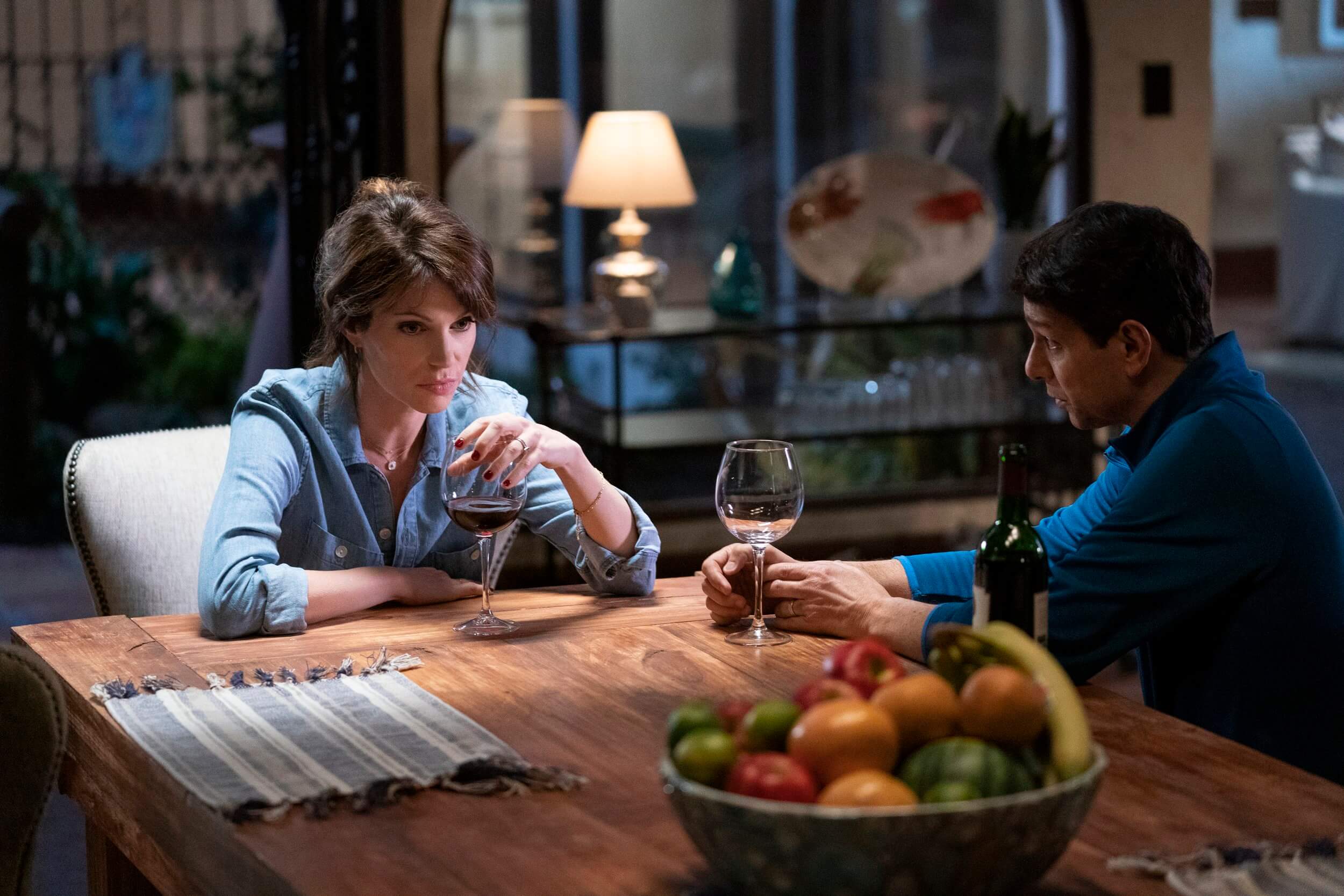
Each of the younger generation has a compelling plot thread or two to play out this year – it feels as though the show’s more focused scope has allowed the younger actors to shine with clearer arcs to play. Tanner Buchanen’s (He’s All That, ABC and Netflix’s Designated Survivor) Robby Keene remains the standout of the youths this year. Driven into Creese and Silver’s open embrace by tensions with both his dad, Johnny, and his karate dad, Daniel, Robby has the most compelling story of the youths as he flirts with a total embrace of the dark side of cobra kai karate. Peyton List (Diary of a Wimpy Kid: Dog Days, The Sorcerer’s Apprentice), Jacob Bertrand (Disney’s Kirby Buckets), and Xolo Maridueña (NBC’s Parenthood) remain strong performers. Season 4 also slyly introduces the next generation of karate kids. Robbie, Sam, Hawk, Miguel, Demetri, and Tory cannot compete in the Under-18 tournament forever so the decision to beginning seeding the future of the show is a wise one. An increased role for young Griffin Santopietro as Daniel’s younger son Anthony and the wonderful new addition Dallas Dupree Young as Kenny suggest a Next Cobra Kai that should work well in future years.
All told, Cobra Kai season 4 is a wonderful return to form for the series. It’s a warm, funny, and heartfelt show with enough nostalgia fueled action to make for a strong recommendation. The show has already been picked up for a 5th season on Netflix and I, for one, cannot wait to see where these characters go next.

All ten episodes of Cobra Kai season 4 will be released on Netflix on December 31, 2021. For more information, visit netflix.com/cobrakai.



